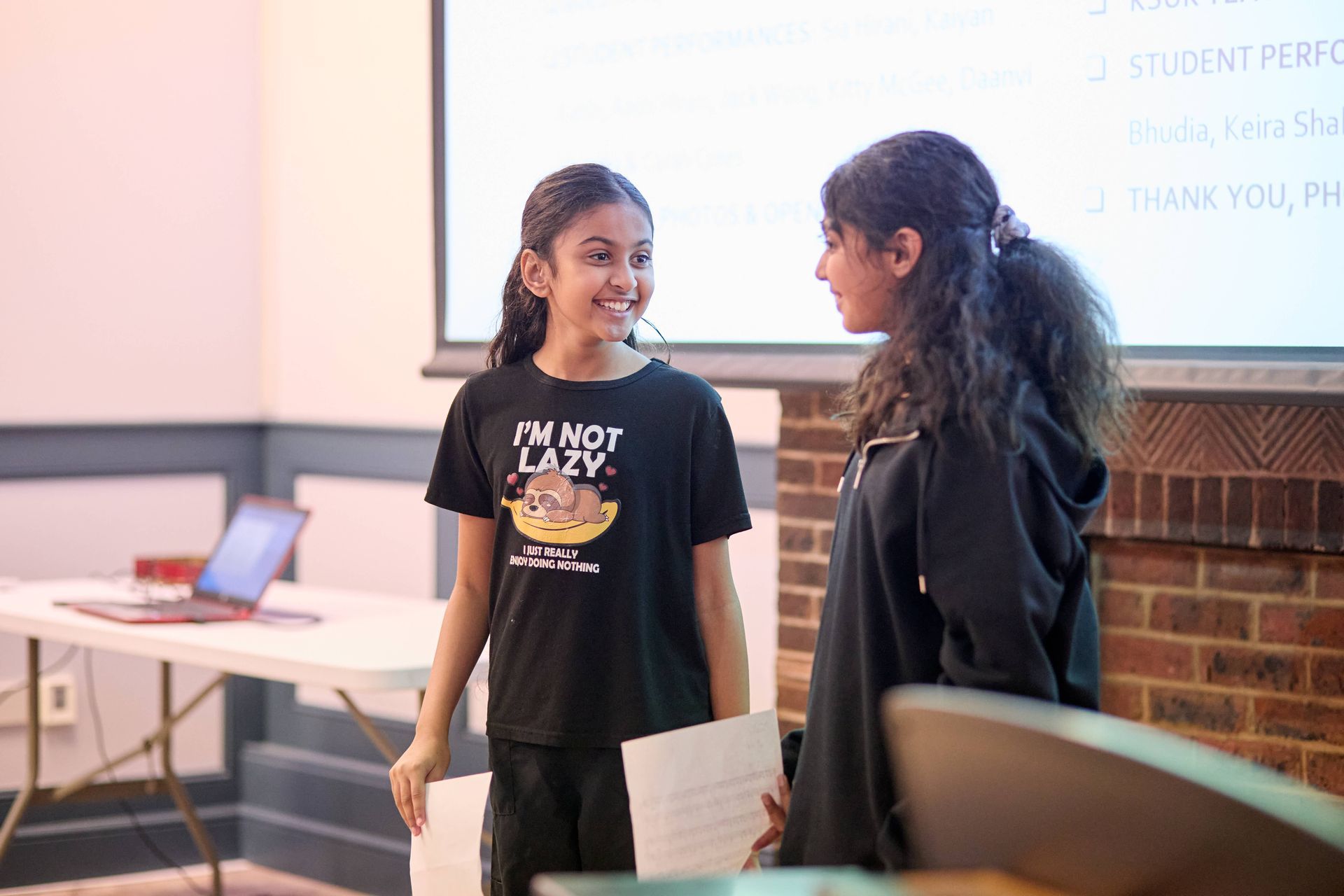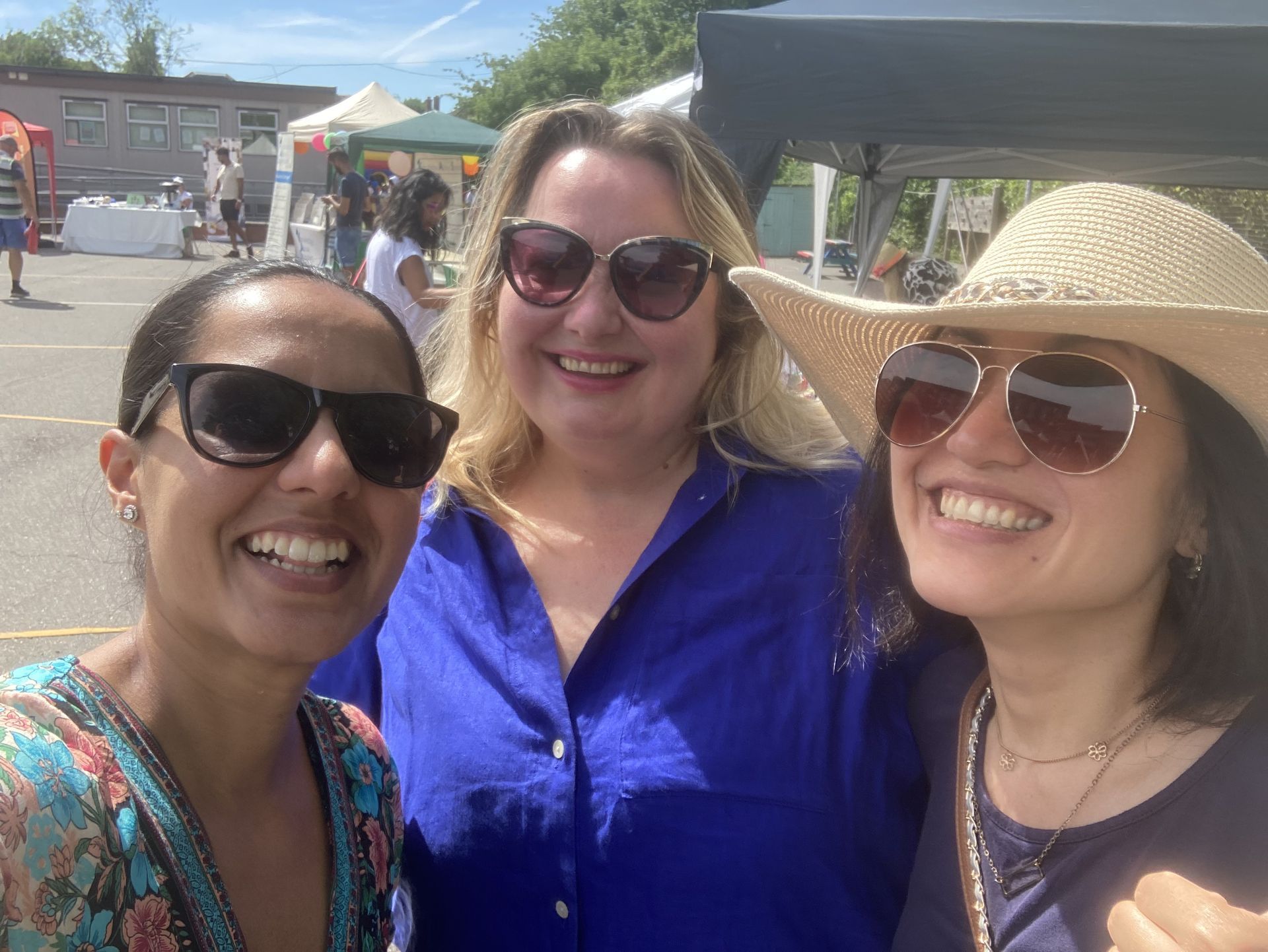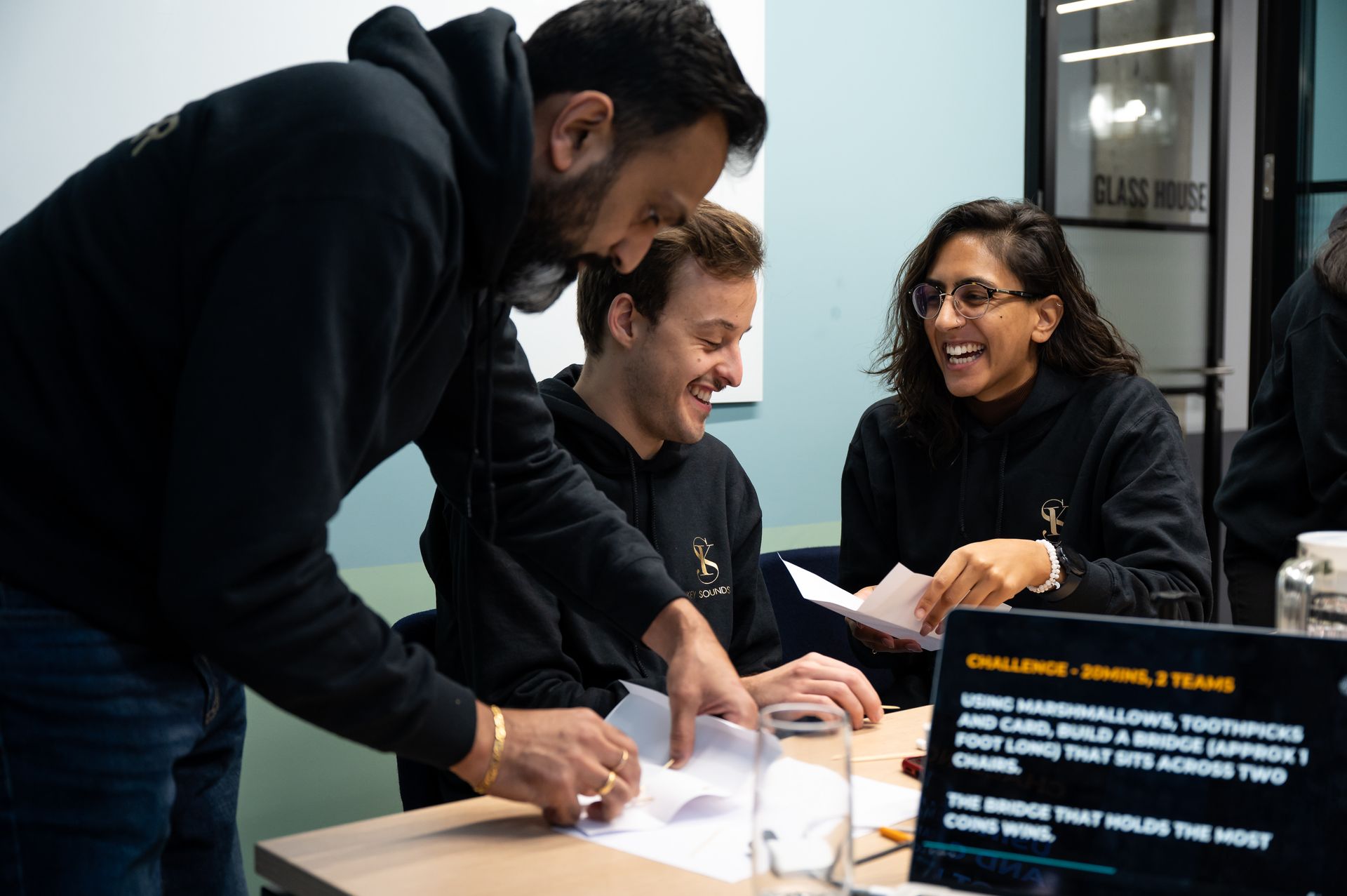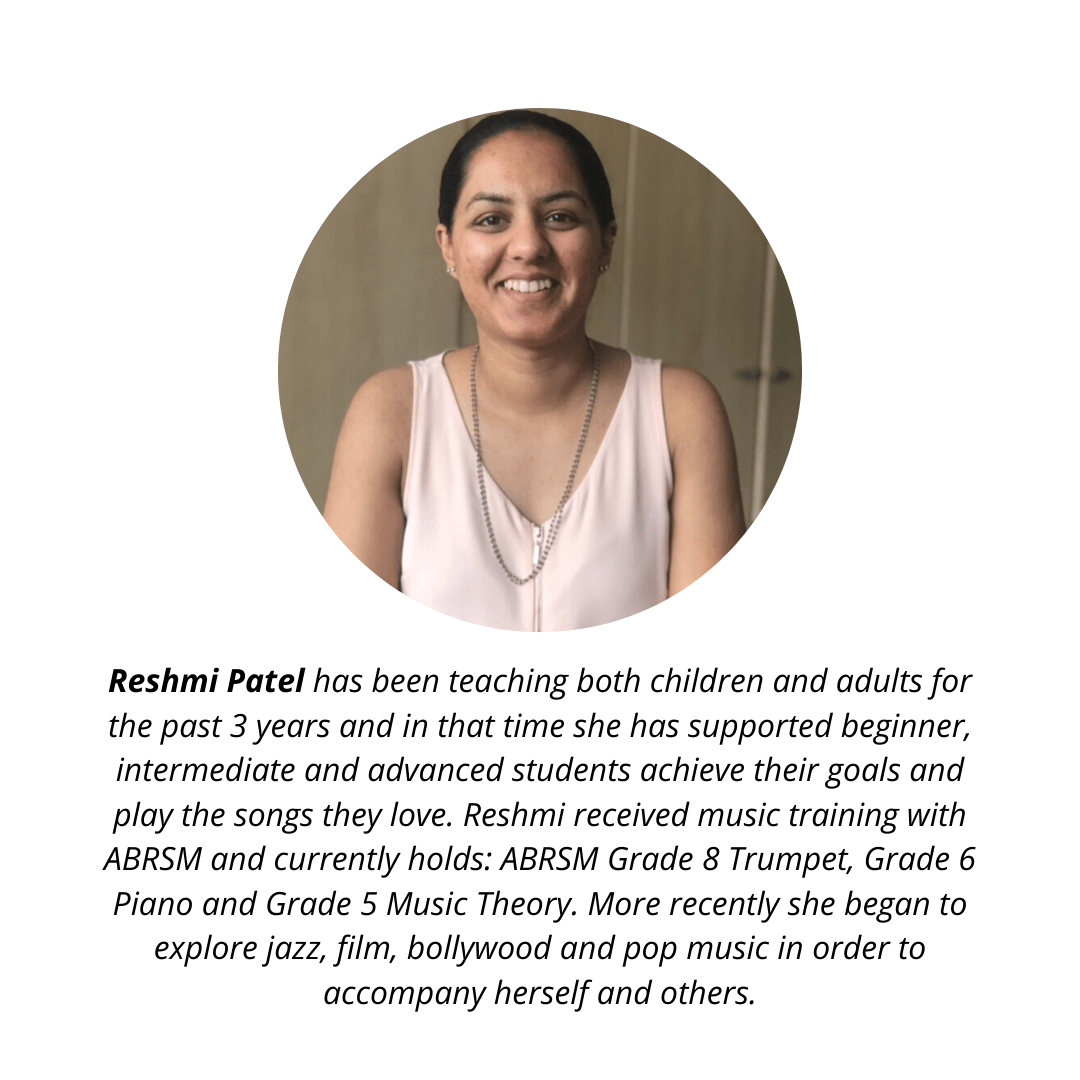Reshmi Patel • July 1, 2020
Our First Three Years In Business
When I first began Key Sounds UK three years ago, I never thought that we would have taught over 40+ students, performed at 15+ events, hosted 3 Informal Concerts and have launched an online learning platform. I never thought I’d have incredible mentors and teachers who would provide me with so much encouragement, insight and support.
Although, that being said, I never thought getting here would be as much of a rollercoaster as it has been to reach this checkpoint, from burnout to feeling like a failure, there were a whole load of unexpected challenges along the route.
As I reflect on the peaks and troughs, I wouldn’t go back and change a single thing! I’m honoured to have had these experiences shape who we all are today.
I remember when I was growing up and my music mentors and teachers would mention how music would always remain a predominant part of my life after I’d finish my studies. They suggested that I should become a teacher or examiner. At the time I laughed it off and told them that I wasn’t interested in either!
As time went on and our musical development continued, I realised that there were in fact several musical avenues I could potentially go down. For the first time out of pure interest in exploring music in another dimension, I decided to research a few of them. They were all challenging in their own ways. At the time the most appealing turned out to be teaching. So, alongside the support of my mentors and teachers I decided to give it a try - ‘just for the summer.’ It turns out that these ‘summers’ are still striving forwards with twists and turns but we’re only just getting started!
Fast forwards and here we are today with a variety of ways both children and adults can gain access to music education from all parts of the world.
Our deepest gratitude goes out to everyone who has supported our journey. This definitely hasn’t been a one-man sport. I would like to take a moment to acknowledge all those who have helped us make a real impact. Together, may we continue to share and spread the joy of music into as many more lives as possible!


Practicing the piano should be both productive and enjoyable. Here are some expert tips to make the most out of your practice sessions: 1. Warm Up Properly Before diving into your pieces, warm up with finger exercises, scales and arpeggios to improve dexterity. 2. Use the 3C’s: Confidence, Communication, and Community At our piano school, we emphasize these three pillars to accelerate learning: Confidence: We provide regular feedback and encouragement to help students believe in their abilities. Communication: Regular progress check-ins ensure that students stay on track and adjust learning strategies as needed. Community: Through our student concerts we provide students with the opportunity to share their progress and learn from each other, making the experience more fulfilling. 3. Mix Up Your Practice Routine Avoid boredom by alternating between technical exercises, sight-reading, and playing your favourite songs. 4. Take Breaks Short breaks during long practice sessions prevent mental fatigue and improve focus. 5. Play for Others Sharing your music with family, friends, or at our regular concerts helps you gain confidence and refine your performance skills. By incorporating these methods, you’ll improve faster while enjoying the process. Get in touch to find out more information here: www.keysoundsuk.com/contact

Music theory is the foundation of great piano playing. Here are the essential concepts every beginner should know: 1. Notes and the Musical Alphabet Music consists of 12 notes: A, B, C, D, E, F, G, and their sharps and flats. Learning the notes on the keyboard is the first step. 2. Understanding Rhythm and Time Signatures Time signatures tell you how many beats are in each measure. The most common is 4/4 time, where each measure has four beats. 3. Chords and Scales Scales build finger strength and understanding of key signatures, while chords provide harmonic structure. Start with major and minor scales, then move to simple triads. 4. Intervals and Ear Training Intervals (the distance between two notes) help with sight-reading and ear training, allowing you to recognize harmonies in music. 5. Reading Sheet Music Learning how to read notes on the staff will allow you to play a wider variety of music and become more independent as a pianist. 6. Applying Theory to Playing Understanding theory isn’t just academic - it helps you improvise, compose, and interpret music more expressively. By mastering these basics, you’ll build a solid foundation for piano success! Get in touch to find out more information here: www.keysoundsuk.com/contact

Learning to play the piano is more than just mastering an instrument, it’s a skill that can enrich your life in countless ways. Whether you dream of a full-time career in music, a side gig performing or teaching, or simply want to enjoy playing as a hobby, the piano offers lifelong benefits. Here’s why sticking with piano practice, whether you’re a beginner or an intermediate player, is always a great idea. 1. Opens Doors to Musical Career Opportunities If you’re passionate about music, learning the piano can lead to exciting career paths. You could become a professional musician, a music teacher, an accompanist, or even a composer. With dedication and practice, the piano can be a stepping stone to a fulfilling career in the music industry. 2. A Side Gig with Endless Possibilities Even if you don’t pursue music full-time, piano skills can provide additional income opportunities. You could play at events, teach lessons part-time, or collaborate with other musicians. Having a musical side gig can be both financially and personally rewarding. 3. Enhances Cognitive and Emotional Well-Being Studies show that playing the piano improves memory, coordination, and concentration. It also serves as a creative and emotional outlet, helping to relieve stress and boost overall mental well-being. 4. Builds Confidence and Discipline Learning piano requires patience, practice, and perseverance. As you progress, you’ll develop confidence in your abilities and a sense of achievement that carries over into other areas of life. 5. Lifelong Enjoyment as a Hobby Even if you never perform professionally, playing the piano is a rewarding lifelong hobby. Whether you’re playing for yourself, family, or friends, music brings joy and relaxation at any age. 6. Social and Collaborative Opportunities Piano playing isn’t just a solo activity. You can join bands, accompany singers, or participate in community events. Music fosters connections and brings people together in meaningful ways. Whether you pursue piano as a career, a side gig, or a hobby, the benefits are undeniable. From cognitive growth to creative expression, piano playing is a skill that stays with you for life. Keep practicing, stay motivated, and enjoy the journey because every note you play adds value to your life. Get in touch to find out more information here: www.keysoundsuk.com/contact

